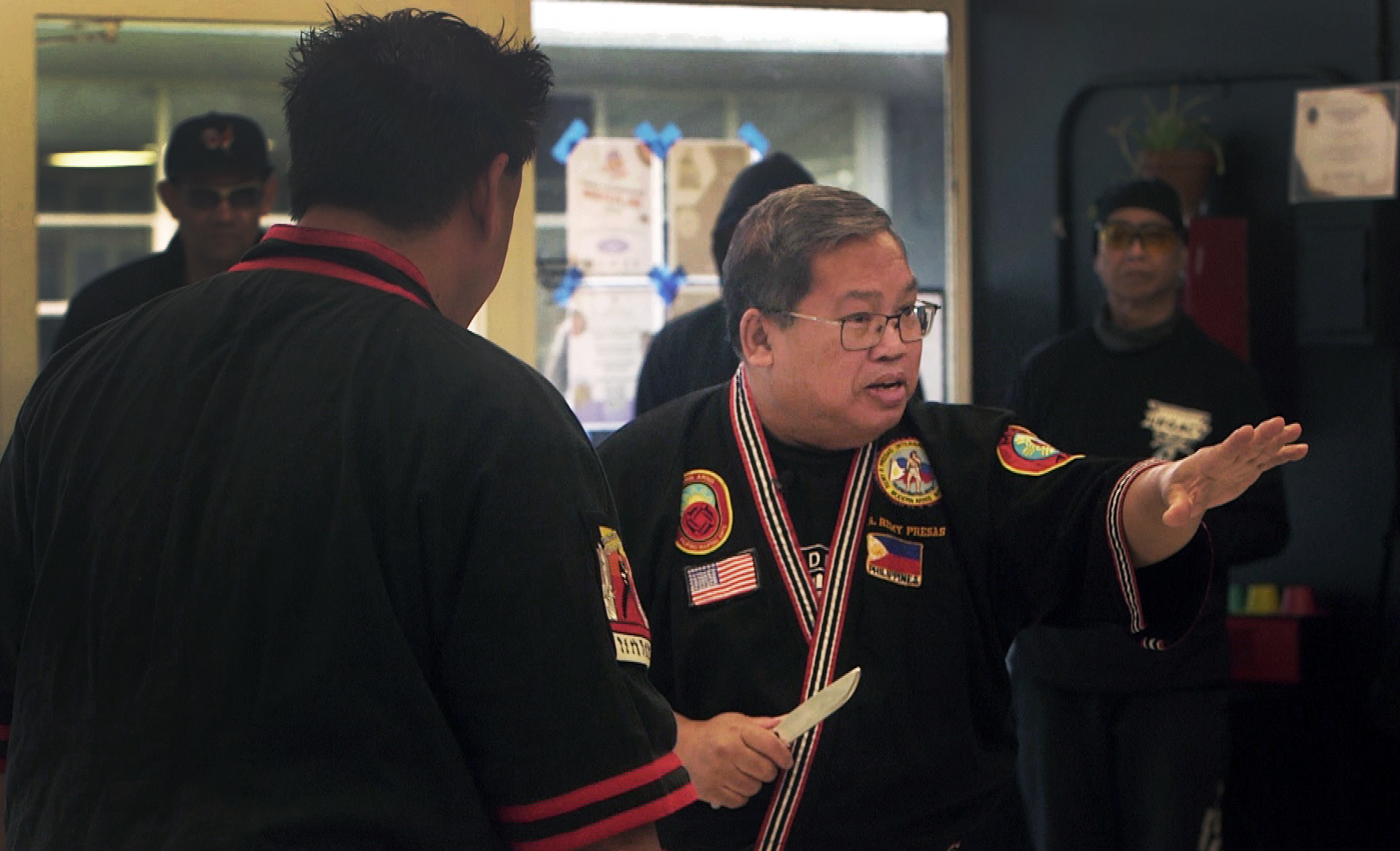In a defunct elementary school turned studio in Daly City, a roomful of adult students are receiving lessons on how to fend off knife attacks, courtesy of one of the Philippines' legendary martial arts practitioners. Ta.
wearing a black gi Dr. Remy Presas Jr., decked out in patches, demonstrated how to block an attacker's knife hand and take turns attacking with the opposite hand. The roomful of students focused with a kind of reverence on every instruction from Presas, the modern pioneer of this practice.
Joseph Bautista, owner of Legacy Philippine Martial Arts, the school where Presas Jr. made a special appearance, said, “The Presas family is one of the key elements in keeping Philippine martial arts alive.” .
Presas Jr. is a second generation practitioner of the type of self-defense system that has been used in the Philippines for thousands of years. In the 1970s, his father, Remy Presas Sr., brought his version, known as Modern Arnis, to the United States from his hometown of Manila and settled in the Bay Area.
His version was a weapons-first strategy, where weapons could be anything from a stick to a knife to a ballpoint pen.
“When you have a big weapon, you don’t have to carry it,” Presas Jr. said. “You improvise with what you have. Instead of hurting someone else, you can use it as a weapon to protect yourself.”
Presas Sr. was not only a modern interpreter of Filipino martial arts, but also a master marketer who traveled the world disseminating his strategies and philosophy. He took his system to police departments and training centers across the country, running camps and writing books. Upon his death in 2001, he passed the torch to his son.
“Before he passed away, he asked me if I could join him in promoting Philippine martial arts and carry on the tradition,” Presas Jr. said.
Presas Jr. accepted his father's request and has similarly traveled the world and the United States giving seminars and preaching the gospel of his combat system. The majority of his students are non-Filipinos. But among his group of disciples, he is proud that he is spreading not only a heritage but a culture.
“My father used to say, 'If you learn Filipino martial arts, you learn Filipino culture and become Filipino,'” said Presas Jr.'s daughter Samantha Presas.

Presas Jr. pointed out that Legacy Philippine Martial Arts is one of the few schools actually run by Filipinos. Bautista discovered this art later in life, and through it he discovered a connection to his Filipino heritage. After taking over his school, he realized that his students were enrolling for reasons other than just learning combat and self-defense.
“People don't just train here for the physical nature,” Bautista said. “They train here for cultural and social reasons. They want to connect with their roots.”
In Presas Jr.'s class on a recent Saturday, students ranging from children to adults paired up with fighting sticks and dueled on rubber exercise mats. In another former elementary school classroom, Presas Jr. passed on the wisdom of his own fighting style, adapted from his father's techniques. The walls of the room were decorated with antique fighting sticks and knives.
Bautista made sure everything ran smoothly between classes, soaking up Presas Jr.'s lessons before rushing to hand out lunch orders.
“The joy for me is being able to see people grow stronger,” Bautista said. “You will feel more confident and learn more about their culture.”
Among Presas Jr.'s students were his daughters Samantha and Joanne. When he was young, Joan Presas didn't even know his grandfather's heritage, he said. That day, when she flipped through a book on Filipino martial arts, she discovered a photo of the man known as the father of modern arnis and a chapter explaining his enormous influence in the art.
“It's really amazing that my grandfather started it,” Joanne Presas said. “And now we are the next generation.”
When it comes to the next chapter of her family's legacy, Samantha Presas learned Filipino martial arts as a child and hopes to become the next generation in her family to teach them.
“A lot of it is just going with the flow, being able to move with the flow, being able to adapt,” Samantha Presas said. “That's historically what Filipinos have had to do. They have to immigrate to America and they have to fight for their rights.”
For Presas Jr., his family’s legacy is in martial arts. Not only was his father an innovator, his uncles also left an important mark on traditional self-defense systems. And apparently, the family story continues through his own daughters.
“I'm very proud of it,” Presas Sr. said, sitting in one of the classrooms. Because she “sees the legacy her father left behind.”

